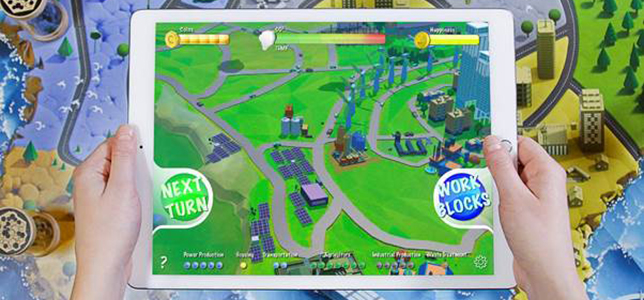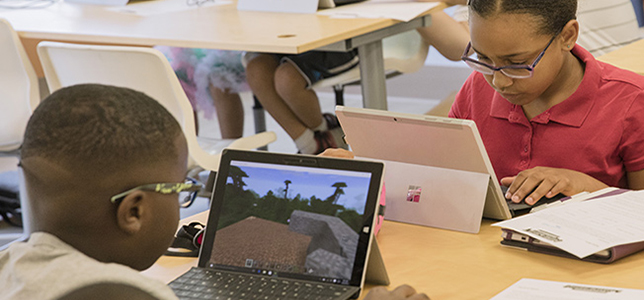
Amazon Inc. will refund millions of unauthorized in-app purchases made by kids on mobile devices. According an announcement from the Federal Trade Commission this week, more than $70 million in-app purchases made between November 2011 and May 2016 may be eligible for refund.

In the city that has been leading the fight to slow climate change, students will soon spend class time using an augmented reality (AR) game to figure out how to reduce greenhouse gas emissions.

The MakerMinded digital platform will connect Ohio students to advanced manufacturing learning experiences. Teachers and students can participate in STEM-related activities, while competing against other participating schools.

Makeblock, a DIY and STEM education robotics construction company, has received the Red Dot Award 2017 for product design for two products: Airblock, a modular and programmable drone designed for STEM education; and Neuron, a programmable building blocks platform that teaches kids gadget building.

The largest mobile STEM lab of its kind in the country will be touring Maryland schools to help drive student interests in STEM. The Mobile eXploration Lab, or MXLab for short, will deliver hands-on biology, chemistry, environmental science and other STEM experiences to high schoolers.

High school students in New York have figured out a creative way to help feed city residents in need. Students attending schools that are part of the city's "Renewal Schools" program can convert their work in solving math problems into points that are turned into donations.

Minecraft Education Edition this week hit version 1.0, adding several new features to the school-focused version of the world building game.
Microsoft has unveiled new Windows 10 devices designed to compete with Chromebooks on price; an update to Minecraft for Education; and a new tool for managing classroom devices, Intune for Education.
Virtual reality and robotics will become widely adopted in education in the next two to three years, and wearable devices are expected to become mainstream in the education space over the next four to five years, according to a recent report published by the New Media Consortium and the Consortium for School Networking.

Octopus, an up-and-coming smartwatch for children aged 3-8, has raised nearly $1 million on Indiegogo, an international crowdfunding website.